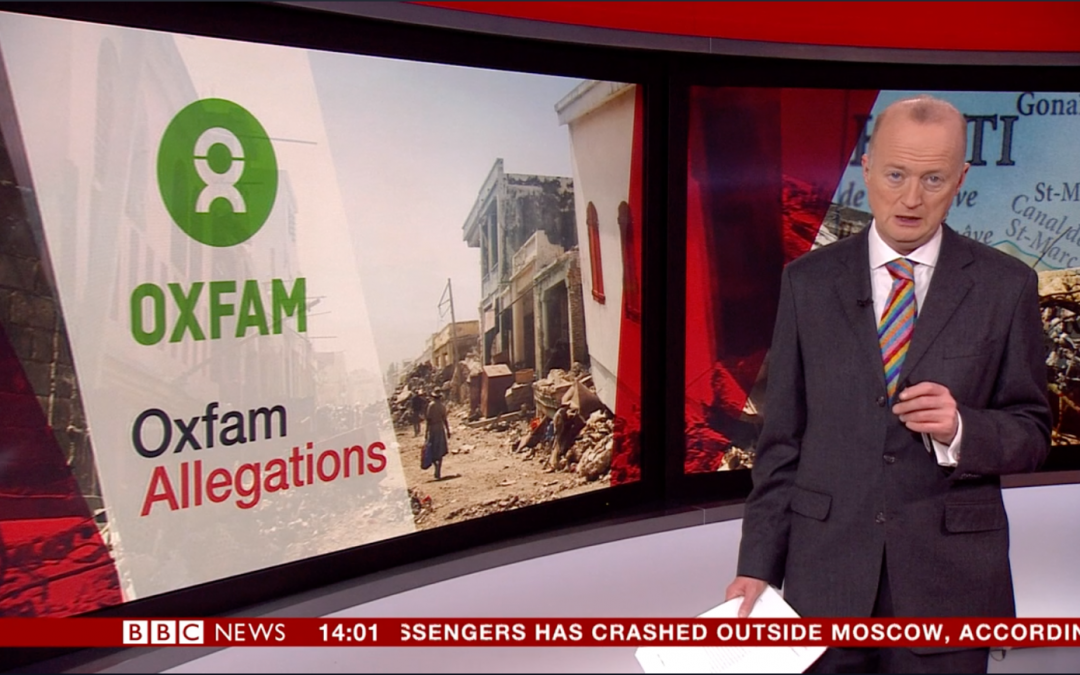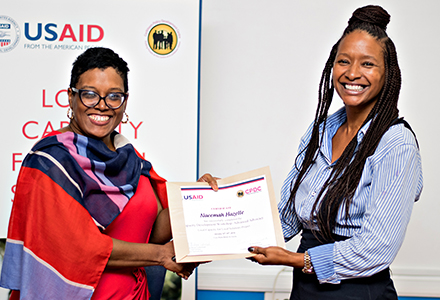Daniel Diaz Vera, PhD Researcher, Global Development Institute
Over recent decades, good governance has been seen as one of the key mechanisms for NGOs to build and sustain their legitimacy. For many NGOs, governance is embodied by a board of trustees which is often portrayed as a diversified group of individuals, positioned beyond the daily management duties, who have responsibilities for steering the organisation, acting as a high-level decision-making body, and who hold the ultimate accountability for an organisation’s activities.
In a book published in 1995, Michael Edwards and David Hulme succinctly observed that ‘the developmental impact of NGOs, their capacity to attract support, and their legitimacy as actors in development, will rest much more clearly on their ability to demonstrate that they can perform effectively and that they are accountable for their actions.’ The ongoing validity of that statement was recently demonstrated by the Oxfam scandal in Haiti, which resulted in Oxfam losing 7000 individual donors in 10 days and led to the charity being banned from operating in Haiti. The case vividly highlights what is at stake when public trust is lost, and also its consequences.
The well-publicised example of Oxfam highlights that the widespread use of governance practices within NGO sector has not prevented the occurrence of misconduct. The way in which governance has been defined and operationalised is not necessarily leading to a connection between organisations and their environment – a connection which helps to secure the sustainability of these organisations thanks to a robust legitimacy based on social position. Further research on NGO governance is called for when we consider the current complexity in the field. For example, some governments are restricting the action of civil society organisations at a time when emerging social phenomena such as various refugee crises are shaking the globe.
If we look into the current situation and evidence, we can isolate at least six governance and accountability challenges for NGOs:
1. The autonomy challenge
As governance has to do with the idea of ownership, the obvious question is: who ‘owns’ an NGO? Who is entitled to demand accounts from an NGO? Who might be seated on an NGO board of trustees? What values do board members follow? What rationale do board members use to make decisions at meetings? Do board members, by default, have some personal agenda which explains their membership of the board?
2. The conceptual challenge
In the past, corporate governance practices were often introduced to help to solve the so-called ‘agency problem’: that is, governance was seen to be necessary to avoid conflicts of interest and, importantly, to ensure that professional managers were fulfilling their responsibilities. In short, it was considered necessary to look after the interests of shareholders’ interests, especially the financial concerns of the owners. More recent approaches to corporate governance have underlined that it is not only owners who are entitled to demand accountability but in addition, managers’ responsibilities should extend to wider groups of stakeholders. Yet, arguably, despite the appeal of these more recent approaches to governance, the classical one, emphasising the care for private financial value, remains particularly popular. As some scholars ask; is governance in the NGO sector primarily encapsulated and explained by the ubiquitous presence of neoliberalism and individualism? In essence, do NGO governance practices take into account public values?
3. The identity challenge
Anyone seated on the board brings their values and world-views to the table. This raises inevitable questions about the degree of alignment between the individual board member and the institutional perspectives. The ‘Who selects board members? Under which criteria are they selected? What characteristics are needed for board members? Who are represented by board?
4. The sustainability challenge
The issue of why the organisation came to existence appears as a central issue when considering the sustainability of NGOs. Why must the NGO keep going? Is this either a matter of providing employment or one that involves the organisational purposes? Should, as a matter of routine, NGO boards consider closing down their organisations if they have successfully met certain criteria? In reality, is financial sustainability usually the overriding sustainability issue for the NGO sector? Do NGOs need to spend more to enhance organisational capacities to do a better job? To what extent is it possible to convince donors and agencies that more resources need to be allocated to administration and organisational arrangements to enable NGOs to make a sustainable difference not only with beneficiaries but also with their employees and other stakeholders?
5. The ethical challenge
NGOs can be torn between the needs and demands of different stakeholders which, in turn, creates a situation characterised by ethical relativism. For example, in cases where these needs and demands conflict, what is the right and ethical way for an NGO to prioritise the allocation of resources? There are donors expecting effectiveness; Governments requiring legal compliance; volunteers anticipating a place to fulfil their desire to give back; communities seeking respect for their local identity; professionals within the NGOs demanding resources to provide quality services; and last but not least, beneficiaries expectant for some improvement in their quality of their life. In the end, this challenge has to do with the question of why the organisation was established. Ultimately, to whom is the NGO accountable? As an indication of the influence of various stakeholder groups, within NGOs, what role do these stakeholders play in accountability plans and governance processes? Is a board doing their best in helping us to achieve the organisation’s social purpose?
6. The organisational challenge
Governance has been studied as an issue that matters to board members. This type of research digs into relations and dynamics among board members. Less attention has been paid to the systemic nature of governance or the involvement of others who do not have seat on the board. To what extent do non-board members provide information or translate board’s decisions into organisational procedures or practices that serve to enhance good governance and accountability within the NGO sector? Where it does occur, what does that involvement looks like? Is it possible to describe governance as an organisational function rather than solely an activity of the board? Is this systemic view a way to enhance the board member’s responsibility awareness on the consequences of their decisions?
These challenges are not only about governance and accountability but are also about trust and the role that NGOs play in our societies. Financial scandals as Enron and WorldCom in the US and Maxwell Communications in the UK reignited the interest in governance and accountability in the light of the social and economic impact of massive corporate failures. Maybe the Oxfam affair is a dramatic reminder that magical solutions do not exist and that it is time to explore more deeply how governance has been viewed and implemented in the NGO sector.
Daniel is a Brooks Doctoral College PhD student in the Global Development Institute. His PhD research aims to explore specific aspects of the challenges outlined above with reference to the NGO sector in Chile. To do so, his research seeks to expand the angle of analysis by looking at governance as a systemic process that involves not only board members but also others such as team leaders, executive directors, scholars, and practitioners working in the field
Sourced from: http://blog.gdi.manchester.ac.uk/board-good-governance-accountability/





